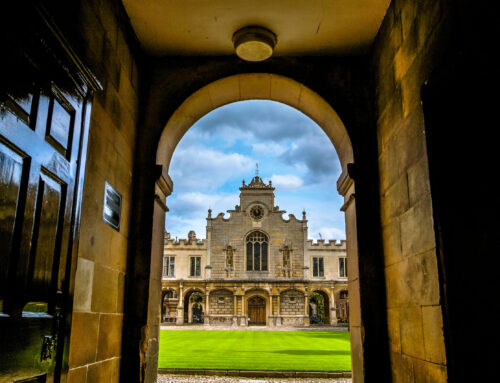Compared to those of us who applied to university more than a few years ago, today’s students are faced with a different world in terms of diversity of opportunity with cutting edge degrees and a huge amount of choice. How does a student choose between studying a degree in Sustainable Development, Sports Biomechanics or Cyber Security? Or decide to opt for a degree apprenticeship or a combination of degree subjects, such as Psychology and Biology or Computer Science with Business Studies? The higher education sector is very different today to how it was to ten, twenty, thirty years ago – degrees offering excellent employability opportunities are likely to be somewhat different to previous decades, just as what constitutes a ‘good’ university operates in a different landscape today – so it is important not to rely on out-of-date perceptions.

One of the most interesting and significant developments in recent years is the degree apprenticeship, which can be perceived to be a less desirable option but is backed by most of the major employers, including organisations and companies such as GCHQ, BP, JP Morgan and IBM, to name just four. Degree apprenticeships combine working for a company and completing a degree in parallel and have the additional benefit of a salary. This option is, perhaps, one that is underplayed but once students investigate it can become a very attractive prospect.
There are also key changes afoot for the UCAS application itself in the 2024 entry cycle: a new approach to reference writing, tweaks to deadline dates and to the applicants’ gender question. These changes are in addition to the year-on-year development of the degree subjects on offer to applicants; the pace of change in the subjects and combinations seems to be increasing every year. Each university has its own distinctive characteristics and thus applying to university in the UK involves a series of decisions and research for each individual student – and that does not even include the initial decision of whether to apply for a degree course or an apprenticeship or to enter the world of work. Students, parents and carers, and school university advisers all are faced not only with the excitement of an application combined and planning for the future, but also with a series of inter-linked decisions and need for research.
The message to all applicants is to thoroughly research all the opportunities and reach beyond their starting point. I have had many conversations with students who will announce that they want to study a particular degree, but it quickly becomes apparent that they have misunderstood what that degree would entail and instead a different degree would be much more suitable. For example, a student who had expressed an interest in global interactions, inequality and different ideological approaches to aid and development had concluded that Economics was the right degree for them, but after opening up to other options they saw that International Relations was a better fit. One way of approaching what might seem an overwhelming amount of choice is to embrace the exciting opportunities on offer: explore and discover the range of options, do not rely on one source of information and check the validity of opinions and facts before discussing with informed, neutral advisers.
As a result, one aspect of an application which some students can get wrong is time: leaving the completion of the application form until late into the application window and then needing to rush the application. This leads to university applications becoming stressful and, as important, less considered and thoroughly researched. Starting to explore, in a structured way, options and possibilities in Year 12 is to be encouraged as this gives students the time to enjoy investigating the diversity of options and is likely to lead to higher quality, timely decision making – and the opportunity to change their minds, several times if necessary. One of the techniques I have used is to ask students to write down what they most enjoy about their A Levels and interests, discuss it with them and then suggest to them five degree subjects to research, focussing especially on Years Two and Three of the degree course. When they come back to me to discuss their findings, I suggest some more degree subjects and the student researches those options and then produces a long (or short) list of possible degree courses. This gives students a framework, and deadlines, to work to and over time they become more confident in their research and are able to narrow down their options.
The choice of university can seem either ridiculously complex – with over one hundred universities to choose from – or might be based on a very narrow list due to preconceptions about universities. Neither is quite the right view: university choice is individual (what might suit one student might not fit another) and needs to avoid too much emphasis on historical reputations. Universities and the cities/towns where they are located all have their own character and characteristics: living in a mega city is not for everyone, but then equally some students are attracted to large cities and less so to smaller urban centres. University League Tables – and there are a number of them – are useful but should not be used alone in making decisions. Students need to be happy with their university choice and thus the location, student accommodation, sports facilities and employability will all play a part in the decision-making process.
Read more from Duncan Chamberlain in his upcoming publication, How to Complete Your UCAS Application 2024 Entry. Get step-by-step guidance on how to fill out your UCAS application as well as essential advice for what to do on results day. Pre-order the book here.
Duncan is currently a member of the Senior Leadership Team of MPW London (as Head of Faculty, Director of Professional Development and Director of UCAS and Careers). He has held the position of Head of Careers/UCAS at three schools, helping students with their university applications. His background is in business, working internationally in the venture capital sector, and he is also Fellow of the Royal Society for the Arts (RSA).






